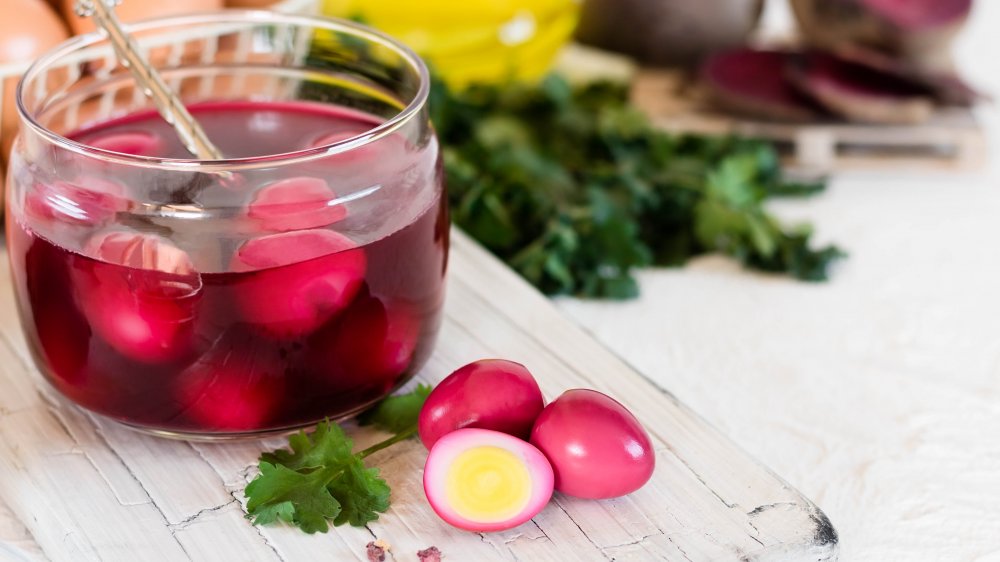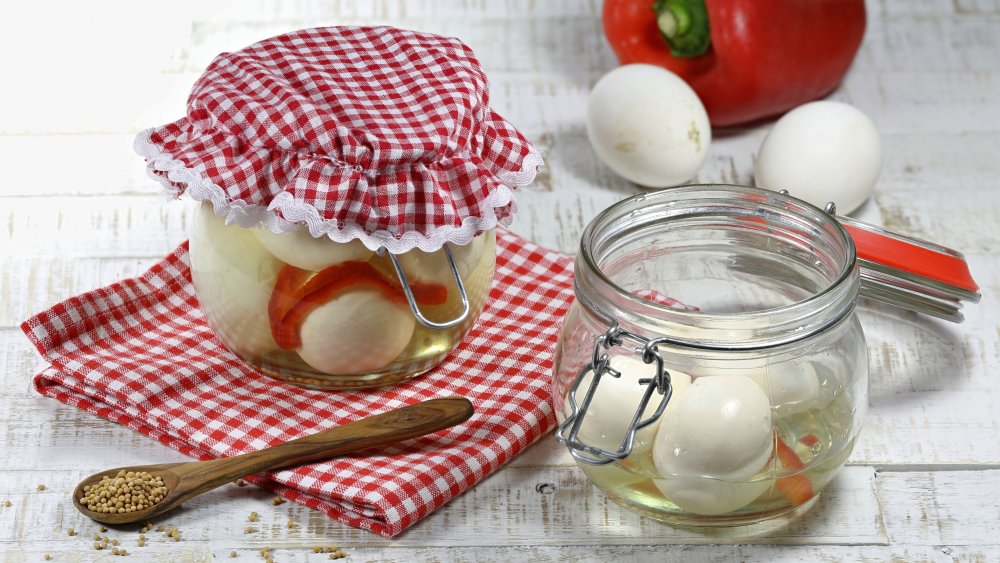Read This Before Making Pickled Eggs
Canning and pickling are both good ways to preserve extra food (especially fresh fruits and veggies) and save for later use, but you have to be careful to follow the right process. If you don't and you eat food that hasn't been properly preserved and stored, you could end up getting seriously sick. Pickled eggs are one food you need to be careful with. According to the Centers for Disease Control and Prevention, in 1997 a 68-year-old man became so sick after eating pickled eggs he had to be hospitalized, and was later diagnosed with botulism.
According to the CDC report, the eggs had been stored at room temperature and were even occasionally exposed to sunlight, which allowed the bacteria to grow — but just because it happened once doesn't mean that making or eating pickled eggs is inherently unsafe. The 68-year-old man from 1997 was the first reported case of botulism related to pickled eggs in the US. If you're not following proper storage methods, any food has the potential to grow bacteria and make you sick; but as long as you're following safe preparation and storage methods, you should be able to make your own pickled eggs at home without getting ill.
How to safely make and store pickled eggs
According to the National Center for Home Food Preservation, you can keep your pickled eggs safe to eat (and safe from bacteria) just by storing them in the fridge. Storing pickled eggs at room temperature invites bacteria to grow, so if you have to leave them out of the fridge, just make sure they don't sit at room temperature for more than two hours. To make your own pickled eggs, Kitchenicious recommends using small or medium fresh, clean eggs that don't have any cracks in the shells. Wash the jars you'll use in hot, soapy water, and keep them hot by submerging them in simmering water until you're ready to add the eggs. Hard boil and peel your eggs, then prepare the pickling liquid.
According to the National Center for Home Food Preservation, most pickling mixtures are made with vinegar, salt, and other seasonings. To make sure your pickled eggs are safe to eat (and taste good), don't just mix ingredients however you want — it's best to follow a tested recipe from a trusted source. Many recipes call for heating the pickling solution until it boils and simmering for at least five minutes, then pouring it over the eggs until they're completely covered and storing in the fridge. Usually, your eggs will need to soak in the pickling mixture for at least one or two weeks before you'll be able to taste the seasoning. As long as you follow safety measures completely when you're cooking and storing them, making delicious pickled eggs should be easy.

